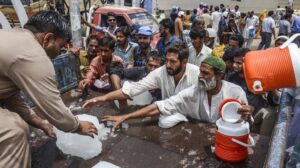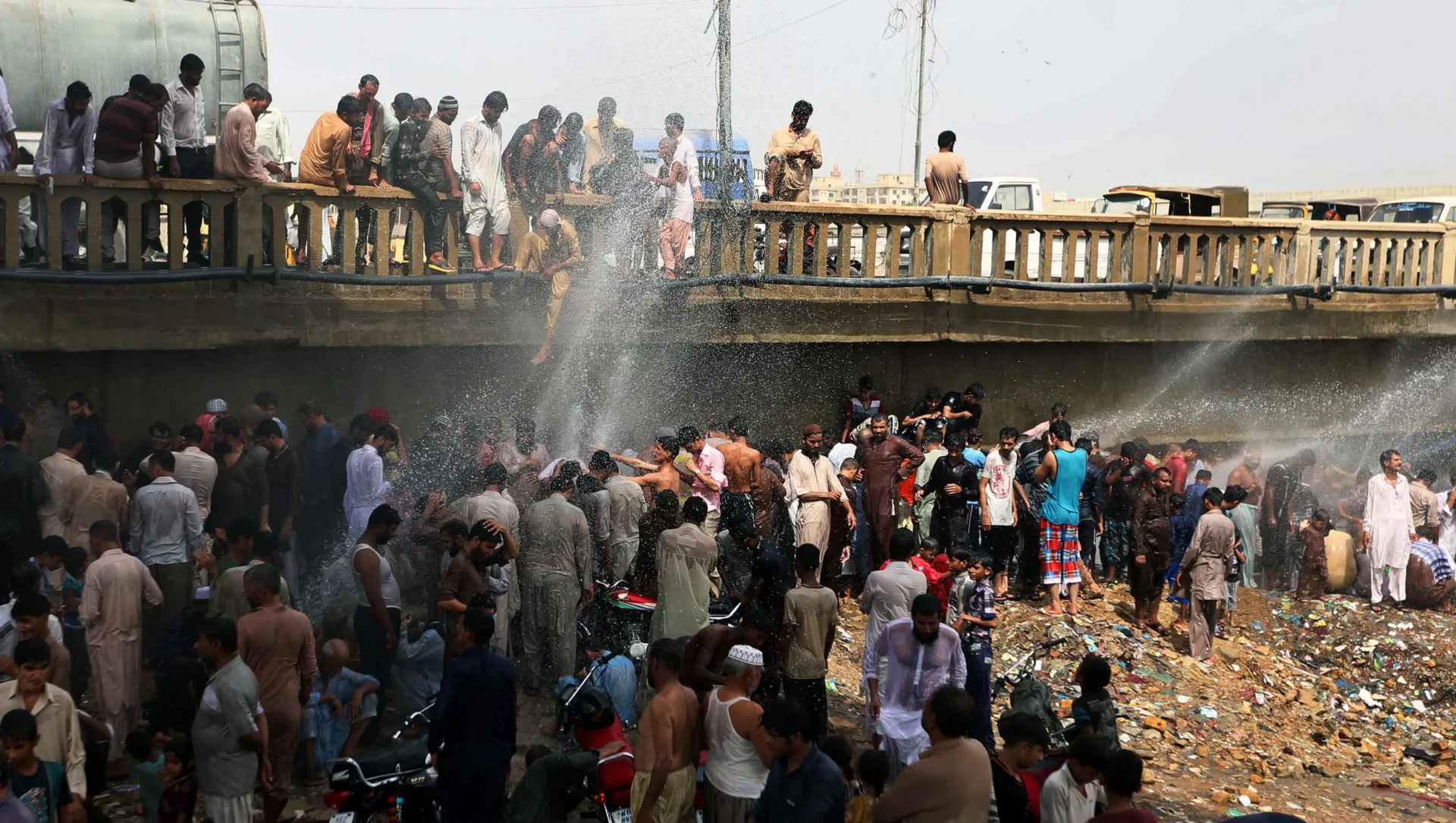Heatwave Emergency in Punjab: PDMA Implements Urgent Measures
In an alarming development, the Provincial Disaster Management Authority (PDMA) has forecasted a severe heatwave gripping Punjab until May 27. The sweltering conditions are expected to push temperatures to a blistering 48 degrees Celsius, posing significant health risks to residents. The PDMA has issued specific warnings for several regions including Bahawalpur, Rahim Yar Khan, Dera Ghazi Khan, and Multan, where the intensity of the heatwave is projected to be particularly severe.
Heatwave Predictions and Affected Areas:
The PDMA’s prediction has cast a spotlight on the extreme weather conditions affecting Punjab. According to the PDMA, the prevailing heatwave is set to continue, with temperatures soaring to nearly unprecedented levels. The situation is especially dire in southern districts such as Bahawalpur, Rahim Yar Khan, Dera Ghazi Khan, and Multan. These areas are experiencing extreme temperatures that could have serious health implications for the population.
In Bahawalpur, temperatures are expected to hover around 48 degrees Celsius. Similarly, Rahim Yar Khan, Dera Ghazi Khan, and Multan are also bracing for severe heat, with temperatures likely to reach similar levels. The extreme heat not only poses health risks but also threatens to disrupt daily life, exacerbating the challenges faced by residents.

PDMA’s Proactive Measures:
In response to the looming crisis, the PDMA has taken several proactive measures to mitigate the impact of the heatwave. PDMA Director General, in a statement, emphasized the importance of preparedness and immediate action to prevent heatstroke and other heat-related illnesses. The PDMA has established heatwave counters at all hospitals across the affected regions. These counters are equipped to provide immediate relief and medical assistance to individuals suffering from heat-related ailments.
Moreover, the PDMA has ensured the availability of clean drinking water in the Cholistan region, where the scarcity of water could further aggravate the situation. The authority is coordinating with local governments and health departments to ensure a steady supply of water and essential medicines. The establishment of heatstroke camps and the activation of emergency services at hospitals are crucial steps taken by the PDMA to address the immediate needs of the population.
Emergency Measures in Other Regions:
The heatwave is not confined to Punjab alone. Other regions in Pakistan are also experiencing extreme temperatures. In Dadu, Sindh, the mercury has reached a scorching 47 degrees Celsius. The local district administration has responded by setting up heatstroke camps and activating emergency services at Dadu Civil Hospital. These measures aim to provide timely medical assistance to those affected by the
Despite these efforts, residents are facing additional hardships due to prolonged power outages, which have exacerbated the situation. In Dadu, power outages lasting up to 14 hours have been reported, making it difficult for people to find relief from the oppressive heat. The lack of electricity has also impacted the functioning of water pumps, further straining the availability of clean drinking water.
Meanwhile, Sukkur is experiencing even higher temperatures, with the mercury soaring to 49 degrees Celsius. The extreme heat in Sukkur has put immense pressure on local authorities and healthcare facilities. The district administration is working tirelessly to provide relief and ensure the availability of essential services to combat the heatwave.
Health Risks and Public Advisory:
The extreme temperatures pose serious health risks, particularly for vulnerable populations such as the elderly, children, and those with pre-existing health conditions. Heatstroke, dehydration, and heat exhaustion are among the most common heat-related illnesses. Symptoms of heatstroke include a high body temperature, altered mental state or behavior, nausea, and a lack of sweating despite the heat. Immediate medical attention is crucial in such cases to prevent severe complications or fatalities.
The PDMA has issued advisories urging the public to take necessary precautions during the heatwave. Staying hydrated, avoiding direct sunlight during peak hours, and wearing lightweight, loose-fitting clothing are some of the recommended measures to mitigate the effects of the heat. The PDMA has also advised people to check on neighbors, especially the elderly and those living alone, to ensure their well-being during the extreme weather conditions.
Government Response and Long-term Strategies:
The provincial and federal governments are closely monitoring the situation and coordinating efforts to provide relief to affected regions. The establishment of heatwave counters and heatstroke camps is part of a broader strategy to enhance the resilience of communities against extreme weather events. Authorities are also focusing on improving the infrastructure to ensure a reliable supply of electricity and water during such crises.
In the long term, the government is considering various strategies to mitigate the impact of heatwaves. These include improving urban planning to increase green spaces and reduce heat islands in cities, enhancing the capacity of healthcare facilities to deal with heat-related emergencies, and promoting public awareness about the dangers of extreme heat and the importance of preparedness.

Climate Change and Increasing Heatwaves:
The increasing frequency and intensity of heatwaves in Pakistan and other parts of the world are attributed to climate change. Rising global temperatures and changing weather patterns are contributing to more extreme weather events, including heatwaves. Scientists warn that without significant efforts to reduce greenhouse gas emissions and combat climate change, the occurrence of such extreme events will likely become more common and severe.
Pakistan, being one of the countries most vulnerable to the impacts of climate change, is already experiencing a range of climate-related challenges. These include not only heatwaves but also floods, droughts, and shifting agricultural patterns. Addressing these challenges requires a comprehensive approach that includes both mitigation and adaptation strategies.
Conclusion:
The prevailing heatwave in Punjab and other regions highlights the urgent need for effective disaster management and climate resilience strategies. The PDMA’s proactive measures and the efforts of local authorities are crucial in mitigating the immediate impacts of the extreme heat. However, long-term solutions are essential to enhance the resilience of communities and reduce their vulnerability to future heatwaves and other climate-related events. As Pakistan continues to grapple with the effects of climate change, coordinated efforts at the local, national, and global levels will be vital in safeguarding the health and well-being of its population.

